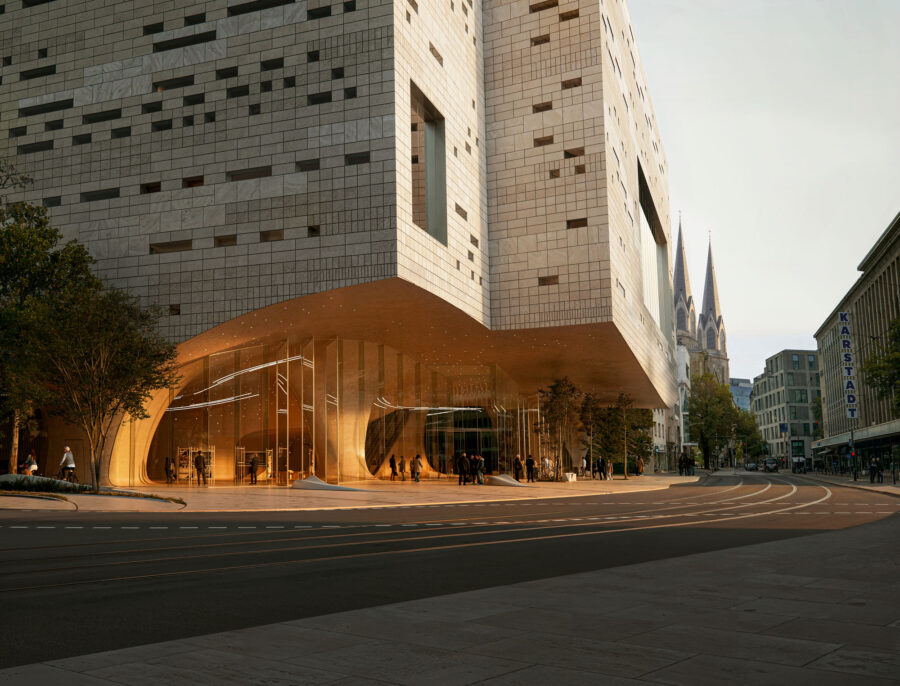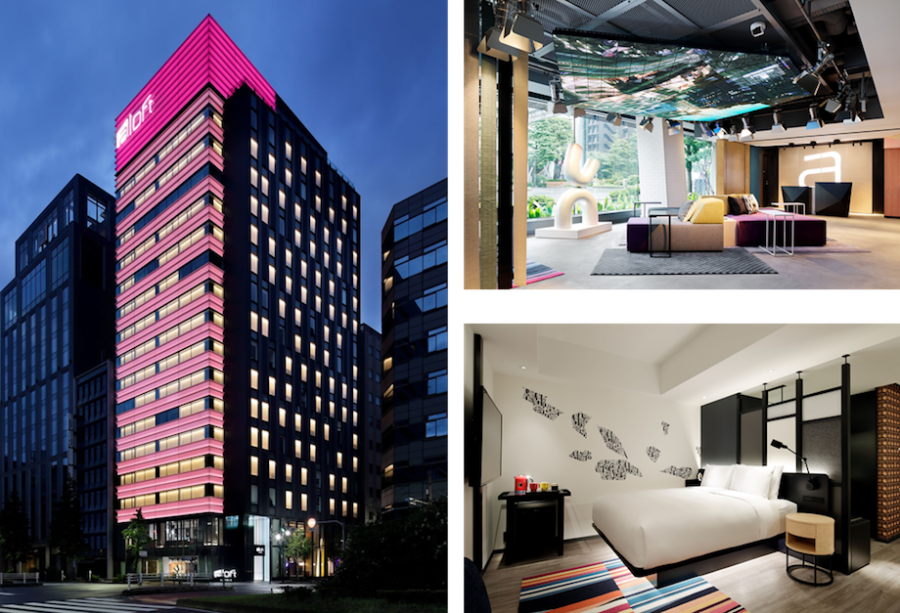
CULTURE


©︎ BoysPlayNice

©︎ BoysPlayNice

©︎ BoysPlayNice
〈Achioté〉はコスタリカで初となる版築プロジェクトです。短期賃貸用に設計された2棟の急斜面の上に建つミニマリズムなヴィラは、生い茂るジャングルの上から突き出し、太平洋に広がる眺望をもたらします。
またどちらのヴィラも、サステナビリティと周囲の自然環境に配慮して設計されています。
チェコを拠点にさまざまな国のプロジェクトを手掛けるクリエイティブスタジオ フォルマファタル(Formafatal)が設計しました。
(以下、Formafatalから提供されたプレスキットのテキストの抄訳)

©︎ BoysPlayNice

©︎ BoysPlayNice

©︎ BoysPlayNice
現地の土を用いた版築の壁
このプロジェクトは、コスタリカで初めての版築による建築であり、外周部の耐力壁は、掘削時に出た粘土質の土によって構成されている。
コスタリカの町ウビタの近く、海から300mの高さにある11,000m²の敷地に、ジャングルが生い茂る丘に2つの小さなヴィラを設計した。南側の急斜面から一部浮いている2棟のヴィラは、短期間のレクリエーション用の賃貸住宅として設計された。どちらのヴィラも床面積は90m²となっている。

©︎ BoysPlayNice

©︎ BoysPlayNice

©︎ BoysPlayNice
私たちが意図したのは、バイオフィリックなインテリアを持つサステナブルハウスを洗練された形でデザインすること、そしてそのフォルムは、余計な要素がなく、かつ、足りないものがない、ミニマルでクリーンであることである。
ヴィラは、青々とした熱帯植物とは対照的に細くシャープな線で描かれているが、選ばれたマテリアルと色は周囲の環境と完全に調和している。

©︎ BoysPlayNice

©︎ BoysPlayNice

©︎ BoysPlayNice

©︎ BoysPlayNice
どちらのヴィラも、建築的には同じものとなっている。素材や間取り、向いている方角も同じだが、インテリア、特にカラーコンセプトは異なり、それはエクステリアにも一部反映されている。
建築のデザインは、どこまでも続く太平洋の眺望と地形に基づいており、インテリアのカラーコンセプトは、建設前のヴィラのロケーションで感じられたエネルギーに呼応している。12mしか離れていないにもかかわらず、それぞれのヴィラは明らかに異なる波動をもっており、それは特にインテリアに刻み込まれている。

©︎ BoysPlayNice

©︎ BoysPlayNice

©︎ BoysPlayNice

©︎ BoysPlayNice
対照的な性格をもつ2棟のヴィラ
ジャスピスヴィラ(ジャスピス=碧玉、明るいヴィラ)は、陰のエネルギーを反映したものである。
それは、視覚だけでなく、その波動も含めて海や空とつながっている。砂の色合いのカラーコンセプトで、この相互のつながりに応えるものである。

©︎ BoysPlayNice

©︎ BoysPlayNice

©︎ BoysPlayNice

©︎ BoysPlayNice
ネフリットヴィラ(ネフリット=翡翠、暗いヴィラ)は、陽のエネルギーを反映したものであり、地面やジャングルとのつながりを感じることができるものである。
選ばれたカラーコンセプトはこれらのエネルギーへの反応であり、コンクリートの床の赤テラコッタ色は、地元の土の色合いを家の内部に伝えている。

©︎ BoysPlayNice

©︎ BoysPlayNice

©︎ BoysPlayNice
新たに植えられた熱帯植物に囲まれた敷地に到着してみると、どちらのヴィラも非常に目立たず、質素な印象を与える。
しかし、ヴィラへ入り浮遊するテラスに向かって進むと、海の景色が広がり、隣接するテラスとインフィニティプランジプールを備えたメインベッドルームのゆったりとした空間に出る。それはまるで、入った時とは別のヴィラにいるような感覚をもたらす。

©︎ BoysPlayNice

©︎ BoysPlayNice

©︎ BoysPlayNice
構造から細部にまでこだわったミニマルな空間
私たちの設計は、建築の構造とディテール、そしてその相互における制約に極めて重点を置いたものである。
土壁とコンクリートという生々しさをもつ素材は、構造用鋼のH形鋼によって補完され、コンクリート製のモノリシックな天井スラブを支えている。このヴィラの桁と梁は屋根の上面にのみ現れ、屋根はU形鋼で縁取られている。

©︎ BoysPlayNice

©︎ BoysPlayNice

©︎ BoysPlayNice
ファサードはすべてフレームレスガラスで構成され、どこまでも続く海の景色を眺めることができる。ガラスのファサードのスライド部分とソリッド部分の形材は、コンクリート天井スラブの溝にはめ込まれている。この手法は、室内照明のレールや、蚊帳とベッド周りのカーテンの連結レールにも使用されている。
床は、ヴィラごとに異なるノンスリップのセメント仕上げで覆われている。コンクリート製の特注家具を含む残りの内壁もセメント仕上げとなっているが、こちらは滑らかでマットな仕上げとなっている。

©︎ BoysPlayNice

©︎ BoysPlayNice

©︎ BoysPlayNice
コスタリカの気候や湿度の高さを考慮し、できるだけ耐久性の高い素材を選定した。
土を用いた版築壁については、コスタリカではこの工法の経験がなかったため、ブラジルからテラ・コンパクタ社(Terra Compacta)の経験豊富な専門家に依頼した。テラ・コンパクタ社のダニエル・マントヴァーニ氏(Daniel Mantovani)は、地元の職人たちを訓練し、コスタリカで初めて版築の建築を実現させたのである。
ミニマムな構成はインテリアにも反映されており、シャワー室とトイレの部分には大判のスライドパネル以外、ドアは設置されていない。

©︎ BoysPlayNice

©︎ BoysPlayNice
コンクリート製のキッチンデスク、シンク、棚、ベッドサイドの独立テーブルやベンチなど、インテリアの設備はほとんどがオーダーメイドとなっている。これらのコンクリートでつくられたもののいくつかは、ベルギーのデザインスタジオ、ブラム・ヴァンダーベック(Bram Vander-Beke)の作品にインスパイアされたものである。
その他の家具、照明、アクセサリー、アートは、オリジナリティを重視し、さまざまなデザイナーの作品から慎重に選定した。

©︎ BoysPlayNice

©︎ BoysPlayNice

Site Plan

Ground Floor Plan

West Elevation

North Elevation

East Elevation

South Elevation

Interior Elevation Longitual

Interior Elevation Longitual

Interior Elevation
以下、Formafatalのリリース(英文)です。
Project name: Achioté
Basic description
This project is the very first “rammed earth” implementation in Costa Rica. Two minimalist-shaped villas designed for short-term rent partially levitate above the edge of a steep hill of the overgrown jungle and bring endless views of the Pacific Ocean. Both villas were designed with respect to sustainability and the surrounding wild environment.Studio: Formafatal
Author: Dagmar Štěpánová
Contact E-mail: dagmar@formafatal.cz
Website: www.formafatal.cz
Social media: www.instagram.com/formafatal, www.facebook.com/formafatal
Studio address: Jilská 4, 110 00 Prague 1, Czech RepublicProject location: Playa Hermosa, OSA, Uvita – Bahia Ballena, Puntarenas
Project country: Costa RicaProject year: 2019-2020
Completion year: 2022
Built-up Area: 190 m² / 95 m² per villa
Gross Floor Area: 180 m² / 90 m² per villa
Usable Floor Area: 180 m² / 90 m² per villa
Plot size: 11,000 m²Client: Dagmar Štěpánová & Karel Vančura
Client’s website: www.formafatal.cz, www.snovatovarna.com
Project website: www.achioteproject.com, www.instagram.com/achioteprojectPhotographer: BoysPlayNice
info@boysplaynice.com
www.boysplaynice.comCollaborator
Rammed earth walls: Terra Compacta [Daniel Mantovani]
Statics: Ch. Vargas
Garden: Dagmar Štěpánová [part of the architectural project]
Realization: construction leader Willy Jeferson Céspedes Vargas + local workers
Realization of screed surfaces: Different Design [Pavel Trousil], www.different-design.cz
Graphic design [logo]: Zuzana Vemeová, www.zuveme.comDescription
This project is the very first “rammed earth” implementation in Costa Rica.We completely used clay soil from the excavations for the construction of all perimeter bearing walls.Near Uvita town, on a plot of 11,000 square meters at a height of 300 m above the sea, I designed two small villas on a hill overgrown with a jungle. Both villas, partly levitating above the steep southern slope, are designed for short-term recreational rentals. The built-up area of each of them is 90 m².
My intention was to design sustainable houses with biophilic interiors, which will be sophisticatedly thought-up and at the same time their shaping will be strongly minimalist and simple. No unnecessary extra element, but also nothing to miss.
The architecture of villas is deliberately with its thin and sharp lines in contrast to lush tropical vegetation, but the chosen materials and colors are perfectly coinciding with the surroundings.Both villas are architecturally the same. Materials, floor plan layout, or orientation towards cardinal points are also identical. However, it differs in the interior, especially by its color concept, which is partly reflected also in exteriors.
The architectural design is based on the genius loci – on the orientation of the building plot towards the endless view of the Pacific Ocean and the morphology of the terrain. The color concept of interiors responds to the energies that were perceived in the location of the villas before their construction.
Although the villas are only 12 m apart, each of them has clearly different vibrations that I reflected into the interior design.Jaspis Villa (jaspis = jasper, bright villa) is a reflection of yin energy. It is connected to the ocean and sky, not only visually, but also its vibrations. With a color concept in sand shades, I respond to this interconnection.
Nefrit Villa (nefrit = jade, dark villa) is a reflection of yang energy. In the Nefrit villa you can feel the connection with the ground and the jungle. Here, too, the chosen color concept is reaction to these energies and the red-terracotta color of the concrete floor transmits the shade of local soil to the interior of the house.Upon arrival, both villas seem very inconspicuous, humble. On the sides they are lined with newly planted tropical plants. But as soon as you pass through the villa, further towards the levitating terraces, after a few steps, the view of the ocean is opening, and you will find yourself in the generous space of the main bedroom with adjacent terraces and infinity plunge pool.
As if you suddenly find yourself in a different villa other than you entered.I put an extreme emphasis on all construction – architectural details and their mutual constraints.
The raw visual materials of rammed earth walls and concrete are complemented by the structural steel H-beams, supporting a concrete monolithic ceiling slab. The girders and ring beam of the house are visible only in the upper face of the roof, which is lined with a pair of steel “U” profiles. They also fulfill the function of the roof attic.
All facades oriented to endless views of the ocean are designed from frameless glass. The profiles of sliding and solid parts of the glass facades are recessed into the grooves in the concrete ceiling slab. In this way was also applied the installation of interior lighting rails and the connecting rail for the mosquito net and the curtains around the bed.
The concrete floor slab is covered with a non-slip structured cement screed, which is different in each villa. The remaining interior walls including concrete custom-designed solid furniture, are also in the surface of cement screeds, but here in smooth matte finish.I chose the materials as durable as possible considering the Costa Rican climate and high humidity.
To realize the clay “Rammed Earth” walls I invited an experienced specialist from Brazil, the owner of Terra Compacta company, because in Costa Rica no one had any experience with this construction method. Daniel Mantovani from Terra Compact trained several local craftsmen and together they can attribute their first place to realize Rammed Earth architecture in Costa Rica.Minimalist architecture is also reflected in interiors, where there is no door except for the large-format sliding panel in the section of the shower and toilet. It also fulfills the function of a hanger wall with a large mirror. The equipment of the interiors is mostly custom-made. Kitchen desk, sink, shelves, solitary bedside tables or bench are made from concrete.
For some of the concrete solitaires, I was inspired by the work of the Belgian design studio Bram Vander-Beke. The creation of this studio is very close to me.
Other furniture, luminaires, accessories and art were carefully selected with regard to originality, often directly from designers across all continents.Materials
clay – perimeter bearing walls
concrete – floor slabs, interior walls, ceiling slabs, plunge pool, furniture (kitchen unit with sink and shelves, bedside tables, outdoor bench (all according to the author’s design)
raw structural steel /H-beams and U-beams/ – columns and rim/attic roof
cement screed /Ecobeton Italy/ – colored surfaces (floor and walls, furniture according to the author’s design)
PlyRock (fibre cement board) – Sliding interior panel (shower/toilet) and dining table (all according to the author’s design)
glass – parts of the facades
teak massive– beds (according to the author’s design)
100% linen – all fabric (bedding, curtains, mosquito nets)Products and Brands
art paintings — Studio Geometr\www.studio-geometr.cz
outdoor armchairs, large objects/vases and other table decoration — 101CPH\www.101cph.com
green upholstered chair /Nefrit Villa/ — Moustache\www.moustache.fr
dining chairs, storage ladder/hanger — Axoque\www.axoquestudio.com
writing desks — Moooi\www.moooi.com
grey stool /Jaspis Villa/ — Muuto \www.muuto.com
lighting/reading lamps — Ingo Maurer\www.ingo-maurer.com
clip wall lamp Micro Pinza /Jaspis Villa/ — Artemide\www.artemide.net
table lamp Panthella Mini /Nefrit Villa/ — Louis Poulsen\www.louispoulsen.com
ceiling embedded spots — Modular Lighting Instruments\www.supermodular.com
track lighting system, wall lamps /bathrooms/ — Arq-Deco Iluminación\www.arqdeco.co.cr
sliding door hardware (facade glass) — Extralum\www.extralum.com
ceiling fans — Minka Group\www.minkagroup.net
wicker baskets and hand fans — Baba Tree\www.babatree.com
faucets — KTH Infinite\www.kthinfinite.com
electro /switches, outlets/ — Eagle T&J\www.eagle.cr
kitchen small appliances — Kitchen Aid\www.kitchenaid.com
other kitchen appliances — Samsung\www.samsung.comAdditional information
The architect of the project Achioté worked at the same time as co-investor, project manager and construction manager.About studio
Architect Dagmar Štěpánová is the founder and principal architect of the internationally awarded architectural studio Formafatal.
She founded the studio in 2015 and currently employs an 11-member team. She has offices both in Prague and Costa Rica, where she has moved. In addition to her architectural activities, she operates the rental of exclusive villas in the Costa Rican jungle, of which she is a co-investor.In 2020, the Formafatal studio became the winner of THE INTERIOR DESIGNER OF THE YEAR 2020 in the prestigious international competition DEZEEN AWARDS 2020 and in the same year won another prestigious award in the ARCHITIZER AWARDS 2020 for the Atelier Villa Costa Rica.
The studio gained other awards for the projects Art Villas Costa Rica, Wine Bar Autentista, Moon Club Night Club, private apartment Loft Hřebenky, or for the Argentine restaurant Gran Fierro.Currently, Formafatal has been working on several commercial and residential projects not only in the Czech Republic but across the world.
We’re a team of friends – architects, designers, and scenographers. We’re a creative studio focused on architecture, interior design, exhibition installation, and product design.
We create public spaces, where people feel cozy, and homes, that are tailored to the clients needs. All projects we approach individually and with focus on specific human needs and client’s requirements. Individual approach for each project is based on mutual understanding with the client, enthusiasm, natural collaboration, and unified conceptual solutions. We solve projects complexly from creative concept to realization, with attention to detail.
The emphasis on sustainability is a matter of course in our projects. In our approach to architecture, we also consider and accentuate historical values that we always try to preserve. Through its projects, the studio seeks to motivate other architects and their clients to approach projects with respect to the environmental problem.
Bio – Dagmar Štěpánová
Dagmar Štěpánová graduated at the Faculty of Architecture at Czech Technical University in Prague. In 2015, after twelve years of experience in the field, she founded her own studio Formafatal.
The architect carefully chose each member of the team and claims that together they form an amazing team. Formafatal is like a family to her. The 11-member team of architects, scenographers, and designers currently works on several commercial and residential projects not only in the Czech Republic but across the world. Formafatal has won several domestic and international awards.
Already during her studies, the architect liked the culture and architecture of South and Central America. In her professional life, her dream came true with the project Art Villas Costa Rica. In the end, Dagmar moved permanently to Costa Rica and, besides the Achioté project, works on several other Costa Rican projects – from residential villas to Yoga -Retreat Center.
「ACHIOTÉ COSTA RICA」Formafatal 公式サイト
http://www.formafatal.cz/achiote-work









